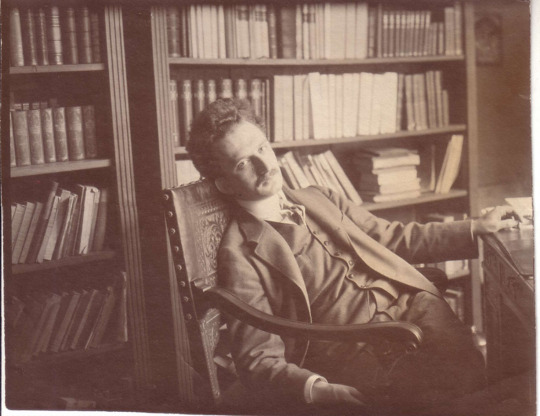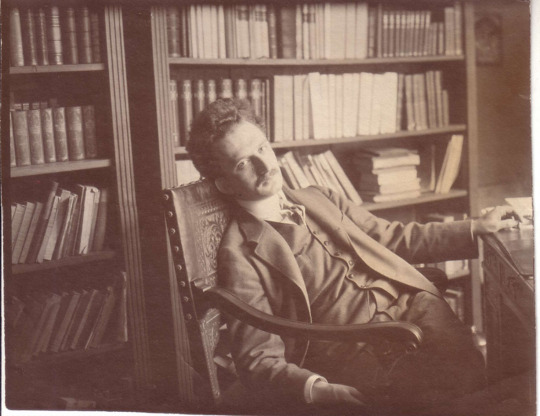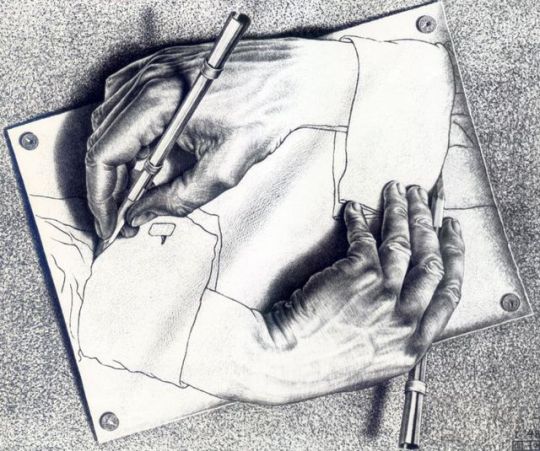#Feenberg
Text
Χειρόγραφα 1844 – Ιστορία και Ταξική Συνείδηση: Τα πρώιμα έργα των Μαρξ και Λούκατς. Αλλοτρίωση, πραγμοποίηση και η Σχολή της Φρανκφούρτης
του Άντριου Φίνμπεργκ μετάφραση και πρώτη δημοσίευση: https://aftercrisisblog.blogspot.com/2015/11/1844.html © Verso – Andrew Feenberg: Lukacs’ theory of reification & contemporary social movements, 7.10.2015 Από την εισαγωγή στη νέα έκδοση του βιβλίου του Andrew Feenberg, καθηγητή στο Πανεπιστήμιο Simon Fraser του Βανκουβερ (Καναδάς), The Philosophy of Praxis: Marx, Lukács and the Frankfurt…

View On WordPress
0 notes
Text
Usbek & Rica - « Exxon et Total n'ont pas besoin de lire Descartes pour détruire le monde »
Référence incontournable de la philosophie des techniques, Andrew Feenberg est l’une de ces rares voix qui défend une critique radicale du « technosystème » sans jamais sombrer dans une technophobie stérile. Ancien élève du philosophe Herbert Marcuse qui a profondément inspiré son œuvre, il publie cette année The Ruthless Critique of Everything Existing (Verso, 2023, non traduit en français). Un ouvrage consacré à la pensée de cet intellectuel contestataire qui tente de réconcilier écologie scientifique et politique.
0 notes
Link
0 notes
Text
Andrew Feenberg, The Ruthless Critique of Everything Existing: Nature and Revolution in Marcuse's Philosophy of Praxis - Verso, February 2023
Andrew Feenberg, The Ruthless Critique of Everything Existing: Nature and Revolution in Marcuse’s Philosophy of Praxis – Verso, February 2023
For several years after 1968, Herbert Marcuse was one of the most famous philosophers in the world. He became the face of Frankfurt School Critical Theory for a generation in turmoil. His fame rested on two remarkable books, Eros and…

View On WordPress
0 notes
Text
Μια συζήτηση για την τεχνολογία, την κοινωνία και την ανατρεπτικότητα
Οι ψηφιακές τεχνολογίες δεν είναι απλώς τεχνολογίες, αλλά πολύ περισσότερο συστήματα που ελέγχονται από τις καπιταλιστικές εταιρίες
Συνέντευξη του Andrew Feenberg στο Πρίσμα
Το Σάββατο 26 Νοεμβρίου 2022 είχα τη χαρά να συνομιλήσω διαδικτυακά με τον φιλόσοφο της τεχνολογίας, Andrew Feenberg, συγγραφέα του βιβλίου Μεταξύ Λόγου και εμπειρίας. Κείμενα για την τεχνολογία και τη Νεωτερικότητα που…

View On WordPress
0 notes
Text
Blog 5: Democratic Rationalization: Technology, Power, and Freedom.
Author: Andrew Feenberg
This paper argues that the current industrial society model is politically contingent, in opposition to the theories of technological and economic determinism. It is demonstrated that there is no basis for the claim that technical or economic "rationality" significantly constrains technical decisions. Technology-related constructivist and hermeneutic approaches demonstrate how contemporary societies are innately capable of diverse kinds of development within different cultural contexts. It's possible that people who are currently subject to the demands and rhythms of technology will one day be able to direct it and decide how it develops. Since the development of such a society necessitates technological advancements that can only be accomplished in opposition to the current hegemony, he refers to the process as one of "subversive rationalisation."
In my opinion, I'm agree with the statement that propose by Andrew Feenberg which those who today are subordinated to technology's rhythms and demands will be able to control it and to determine its evolution in the future. It's true to say so because I believe that only with technology we can make evolution and changes. People who adapted to the technology, naturally, they also have a better grasp of the entire technology which they can easily control the technology and advanced it. People who not adapting or accepting the technology in the early stage, they'll gradually follow the step of those who have a better grasp of the entire technology.
Nowadays, without technology we can think ourselves as 'zero' or 'nothing', it's how "subversive rationalisation" being proposed. Only with technology, the quality of life and the society can be improved as the essence of technology is to improve the quality of human life. The reason why the term of "subversive rationalisation" was established is finally back to technology, today's society is inseparable from technology, we are staying in a technology world, we can't live without it.
0 notes
Text
A brand new Model For Dating
Internet dating has exploded in popularity and it is now loved by millions around the world. While larger cities such as Seattle have literally millions of people around you, somehow dating seems harder than ever. The NPE Team has launched many apps, none of which have particularly taken off, so it’s unclear how committed Facebook will be to Sparked. It will help you weed through the riffraff to find those high-quality people quicker. If you’re with someone who is stonewalling, it will seem as if the other person zoned out or couldn’t care less about what you’re saying. To situate this work in relation to dominant theories of technology, I draw on Feenberg (2002), who argues that most established theories have been of two general types. Ultimately, this dissertation combines technical and material inquiries that are familiar for designers and engineers who build technology, and critical perspectives more common among social scientists. This review is used to develop research questions and a conceptual framework, which are presented at the end of the chapter.
Not only is there a fee on the end of every message, but Reddit users complain about random charges to their account and ignored requests to cancel their subscriptions. This consists of an overview of what values are important for IndieWeb building, followed by a description of how IndieWeb standards and other features shape individuals’ design processes, and finally an account of my own experiences building software for the IndieWeb. Shilton, Koepfler, and Fleischmann (2013) affirm that values and design literature generally uses definitions of values from anthropology, sociology, and social psychology. McChesney (2013) argues that political economic analysis can help move beyond the bounds of either approach to help celebrants understand “the political economic world in which they actually live” (2013, p. In heterosexual relationships where partners over the age of 65 lived apart, men often assumed they or their girlfriends would move in eventually, while women clung to the solo arrangement, enjoying their free time without responsibility for others - this, according to in-depth interviews conducted in 2013 by University of Victoria sociology professor Karen Kobayashi and Laura Funk, now an associate professor of sociology at the University of Manitoba.
The uncertainty of an OSL date is typically 5-10% of the age of the sample. Alternatively, you can plan an activity date. 123), and this decision was a reflection of class and racial prejudices held by Robert Moses, New York’s master builder of public works from the 1920s to 1970s. נערות ליווי בחיפה קריות והצפון The validity of this account has been challenged (see for e.g. Joerges 1999), but this account is at least a powerful parable for understanding how objects can have political consequences as a result of design decisions (whether intentional or not). The believe that such change can be meaningfully pursued through technological design reflects a belief that society and technology are tightly intertwined. Before proceeding with questions of how values are pursued through design, it is necessary to explain what is meant by values in the first place. The first section of this chapter reviews scholarship about the relationship between technology and values. In neither case can we change it: in both theories, technology is destiny. 4It is difficult to develop a precise count of IndieWeb sites, as is the case for many decentralized systems. In sum, IndieWeb’s proposal to build an alternative to currently dominant systems rejects the notion of technology as destiny.
Many efforts to build alternative Web systems such as IndieWeb’s demonstrate commitments to individual empowerment or other forms of social change. In 2017, one of IndieWeb’s contributors ran a Web crawl that identified 2300 IndieWeb sites (Barrett 2017), a low estimate given the inherent gaps to crawling methods. So it's not surprise so many people turn to online dating sites like OkCupid and Match or apps like Tinder and Bumble in their quest to find "the one", especially when there's a super specific quality or type they're looking for. Among the most widely cited accounts of design conveying politics is Winner’s (1980) essay about a series of bridges in Long Island, New York, under which one must pass to reach Jones Beach, an acclaimed public park. Further, I view IndieWeb as situated within broader sociotechnical infrastructures, and consider how this affects its design. This review draws attention to issues of power and control in communication systems, which are important to consider when studying how individual design activities are shaped by the sociotechnical structures in which they are situated, including political economic and cultural influences.
1 note
·
View note
Text
Glauben und wissen hegel pdf
GLAUBEN UND WISSEN HEGEL PDF >>Download
vk.cc/c7jKeU
GLAUBEN UND WISSEN HEGEL PDF >> Read (Leia online)
bit.do/fSmfG
1 de jul. de 2020 — HEGEL, G. W. F. Faith & Knowledge (1977) - documento [*.pdf] G. W. F. Hegel Faith Originally Published in 1802 as Glauben und Wissen de LFB Martin — Tópicos avançados de Filosofia Moderna: A Crítica de Hegel a Kant e a „Glauben und Wissen: Hegels immanente Kritik der kantischen Philosophie: oder die. 4 de jul. de 2022 — The present volume represents the proceedings of the Marquette Hegel Symposium, held at Marquette University, Milwaukee, Wisconsin, on June 2-5, de DN dos Santos Júnior — Resumo. Artigo que, com base no escrito Glauben und Wissen de Hegel, faz uma série de críticas às noções de entendimento e sensibilidade kantianas que5 de jul. de 2022 — PDF | On Jan 1, 2012, Andrew Feenberg published A metateoria da filosofia: a formulação de De Kant a Hegel Glauben und Wissen. de J Barata-Moura · 2012 · Citado por 6 — Para a discussão crítica hegeliana do tema do «nihilismo», se bem que, desta feita, a propósito das concepções de Fichte e de Jacobi: HEGEL, Glauben und Wissen,. de MC Ferreira Gonçalves · 2021 — personagens da história da filosofia: Georg Wilhelm Friedrich Hegel (1770-1831). um ano depois em sua obra intitulada Glauben und Wissen (Hegel 1968b), de MA de Oliveira · 2021 — HEGEL E A MODERNIDADE: A CRÍTICA HEGELIANA À FILOSOFIA MODERNA DA SUBJETIVIDADE Glauben und Wissen oder die Reflexionsphilosophie der
, , , , .
0 notes
Text
Week 2- We can’t blame technology.
Technology is intertwined with the man itself as we were born with enough intelligence to look for solutions. It’s helpful to think about the essence of technology because as Feenberg says “it is by no means irrelevant to a modern world armed with nuclear weapons and controlled by vast technology-based organizations.” Nuclear power is the best example of the importance to reflect on the “essence” of technology. In the past technology made it possible for nations smaller in the territory and population like Japan to rule over China or England to conquer North American territories. Technology doesn’t seem to be the problem, it is the man behind it that can lack values and morals or be to power-driven.
Borgman does have a valid point when he says that focal things require a certain effort and as an example, he cites fast food and microwaves killing the unity of family that are ritually reaffirmed each evening and is also valid when he says individual involvement with nature and other human has been reduced to a minimum and procession became the highest values but without disagreeing with Borgman and Heideggers I believe their theories do not offer real solutions as Feenberg said “some critique is so broad it offers no criteria for the constructive reform of technology itself. “ On the other hand, I do feel more connected to my family and old friends living overseas because of technology.
Feenberg seems to be coming from a more neutral point when he says we can’t understand technology through nostalgia; there is so much we have gained from technology that seems too nostalgic to focus on what we have lost. We chose technology every day, technology is about moving forward, and striving for the best, and doesn’t come without a price. Nothing that it was will be, we need to stand up for regulations on technologies; and on traditions and family ties, we just might need another technology to fix the problems raised by Borgman and Heidegger.
1 note
·
View note
Text
Week 2 - Modern Technology

2 notes
·
View notes
Text
Marcuse diverges from Heidegger in arguing that the congruence of science, technology and society is ultimately rooted in the social requirements of capitalism and the world it projects. As such science and technology cannot transcend that world. Rather, they are destined to reproduce it by their very structure. They are thus inherently conservative, not because they are ideological in the usual sense of the term, or because their understanding of nature is false. Marcuse never calls into question the cognitive value of science and technology. Rather, they are
conservative because they are intrinsically adjusted to serving a social order which views being as the stuff of domination. Thus “Technology has become the great vehicle of reification” (Marcuse 1964, 108).
On this account capitalism is more than an economic system; it is a world in the phenomenological sense of the term. This world is the historical project of a specific historical subject, that is, it is only one possible world among those that have arisen in the course of time. The subject of this world, capitalism, can be displaced by another subject. The question of the future is thus raised.
Andrew Feenberg, 'Heidegger and Marcuse: On Reification and Concrete Philosophy' (2013)
31 notes
·
View notes
Text
Χειρόγραφα 1844 – Ιστορία και Ταξική Συνείδηση: Τα πρώιμα έργα των Μαρξ και Λούκατς. Αλλοτρίωση, πραγμοποίηση και η Σχολή της Φρανκφούρτης
του Άντριου Φίνμπεργκ μετάφραση και πρώτη δημοσίευση: https://aftercrisisblog.blogspot.com/2015/11/1844.html © Verso – Andrew Feenberg: Lukacs’ theory of reification & contemporary social movements, 7.10.2015 Από την εισαγωγή στη νέα έκδοση του βιβλίου του Andrew Feenberg, καθηγητή στο Πανεπιστήμιο Simon Fraser του Βανκουβερ (Καναδάς), The Philosophy of Praxis: Marx, Lukács and the Frankfurt…

View On WordPress
0 notes
Photo

The politics of technology grows out of the technical mediations that underlie the many social groups that make up society. A worker in a factory, a nurse in a hospital, a truck driver in his truck—all are members of social groups that exist through the technologies they employ. Consumers and victims of the side effects of technology form latent groups that surface when they become aware of their shared experience. Encounters between individuals and the technologies that connect them proliferate with a myriad of consequences. Social identities and worlds emerge simultaneously and form the backbone of a modern society. In the terminology of science and technology studies, they “co-produce” each other.
Co-production has a paradoxical structure nicely illustrated by M. C. Escher’s famous print Drawing Hands. In his book Gödel, Escher, Bach Douglas Hofstadter described Escher’s self-drawing hands as a “strange loop” and an “entangled hierarchy.”8 These terms refer to an unusual type of logical relation in which top and bottom change places. Artist and drawing stand in a hierarchy, the active side at the top, the passive side at the bottom. In the print both hands play both roles; the hierarchy is entangled in a strange, endless loop.
[…]
Like these examples of strange loops, society and technology are inextricably imbricated. Social groups exist through the technologies that bind their members together. In this they resemble the drawn hand of Escher’s print. But once bound together the members gain a power over the technologies that bind them. They take the place of the hand that draws. Formed and conscious of their identity, technologically mediated groups influence technical design through their choices and protests. In so doing they reiterate the original paradox of democracy: self-rule is an entangled hierarchy. As the French revolutionary Saint-Just put it in 1791, “The people is a submissive monarch and a free subject.”
Feenberg, Andrew (2017). Technosystem: the Social Life of Reason. Harvard University Press, p. 9-10.
0 notes
Photo

DO NOT SERVE THE PEOPLE. THEY WILL SERVE THEMSELVES.
#when poetry ruled the streets#may 68#mai68#Andrew Feenberg#jim freedman#socialism#marxism#france#color of pomegranates#sayat-nova#Sergei Parajanov
4 notes
·
View notes
Text
Week#2 Blog Post
What are focal things?
I am a very emotional person and i do share Albert Borgmanns idea on technology no allowing us to be humans to feel and experience every single little thing. We sometimes don’t take the time to relax and enjoy the moments in life. Here in Ny specially i feel that we are all always in the run either going to run errands or heading to work. I feel that we should slow down at times.
0 notes
Text
On Public-Facing Scholarship
So by now you’re likely to have encountered something about the NYT Op-Ed Piece calling for a field of study that focuses on the impact of AI and algorithmic systems, a stance that elides the existence of not only communications and media studies people who focus on this work, but the whole entire disciplines of…
On Public-Facing Scholarship was originally published on A Future Worth Thinking About
#alistair croll#Andrew Feenberg#ashley shew#Batya Friedman#Bruno Latour#constructivism#daniel estrada#david j gunkel#David McRaney#Don Ihde#Geoffrey C. Bowker#history#Ian Hacking#Jacques Ellul#joanna j bryson#Joe Pitt#John Flowers#John P. Sullins#Karin Knorr-Cetina#langdon winner#Lee Vinsel#Lucy Suchman#madeline akrich#Matt Brown#michel callon#my work#my writing#Phil Agre#philosophy#philosophy of engineering
11 notes
·
View notes